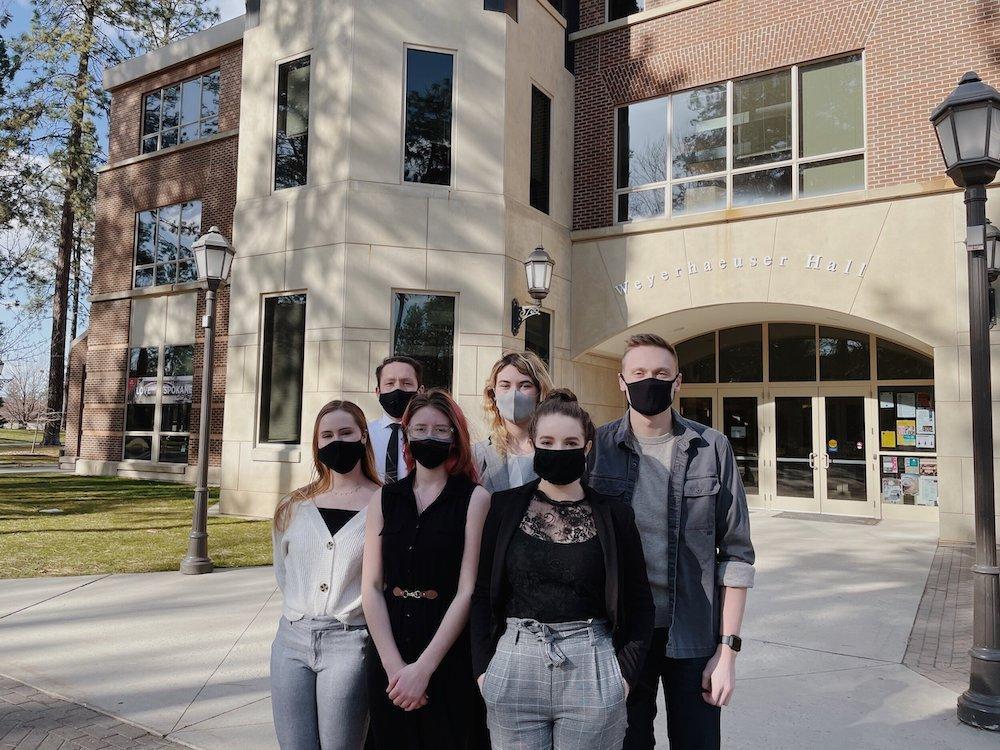
“Tuition was raised almost $2,000.”
I was shocked when my roommate broke the news to me.
According to Greg Orwig, the vice president of financial aid and admissions, costs to run the university increase every year. These include utilities and medical benefits for faculty and staff, as well as minimum wage salaries for student employees.
These factors mean that Whitworth raises its costs every year. Orwig said that about 20 years ago the university was increasing costs 5- 6% yearly. This year, the price increase in tuition and fees was 2.9% for the 2021-22 academic year – a total of $1,340.
“We’re trying to come up with a cost increase that is as small as possible but enough to meet the budget needs [and] to deliver the experience,” Orwig said.
The tuition increase makes sense – especially because, as Orwig pointed out, the university doesn’t get subsidized from the government like public universities do.
But the price raise caught me off guard. I thought that when I entered Whitworth, my bill would be fixed, but now I get the joy of having to find additional funding for the next three years.
Whitworth does have multiple sources of financial aid available for students struggling to afford college. The main sources of revenue that the school promotes are departmental scholarships, talent-based scholarships and donor-sponsored scholarships.
The college offers high scholarships for incoming students, through options like their visit scholarship award, academic awards and need-based financial aid.
One positive aspect of Whitworth’s tuition policy is that Whitworth doesn’t do front-loading, which quite a few other colleges practice. According to College Raptor, front-loading is when colleges give freshman generous financial aid that only applies to their first year. After that, they’re left to “fund” for themselves.
Scholarship coordinator Jenny Keen said that there are also departmental achievement scholarships offered for sophomores, juniors and seniors. She gives us an important piece of advice: “Watch your email, students, because we will send out info on outside scholarships, as well as an email about that donor sponsored scholarship.”
There are also talent-based participation scholarships for those who have skills in music, theatre, art, media, forensics and Young Life. These scholarships are open to students of any credit standing.
Lisha White, assistant director of Donor Relations, said that Whitworth offers donor-sponsored scholarships. These are usually offered by Whitworth alumni and friends who realize the high cost of attending a private university and want to help ensure “that students are not only surviving but thriving.”
The donor-sponsored scholarships are applied for through a central application, found on this website.
White said that Whitworth realizes the inflation in prices can make it hard for juniors and seniors to afford school, so they bring in additional funding to help fill that gap.
When I applied to Whitworth, the bill was high. But I was prepared to afford the number they gave me. Now, I have to find additional sources of revenue.
Tuition increase might be necessary given how the world works, but what about us students? What about the ones who can barely afford the bill they’re given for their first year?
The knowledge that my roommate so kindly imparted to me has given me the added pressure of not only figuring out how to cover my normal college tuition, but also finding funding to cover what that 2.8 percent will cost me – as well as the prices that will continue to increase for all four of my years at Whitworth.
I’d better look at Whitworth’s scholarship website—and my inbox.











